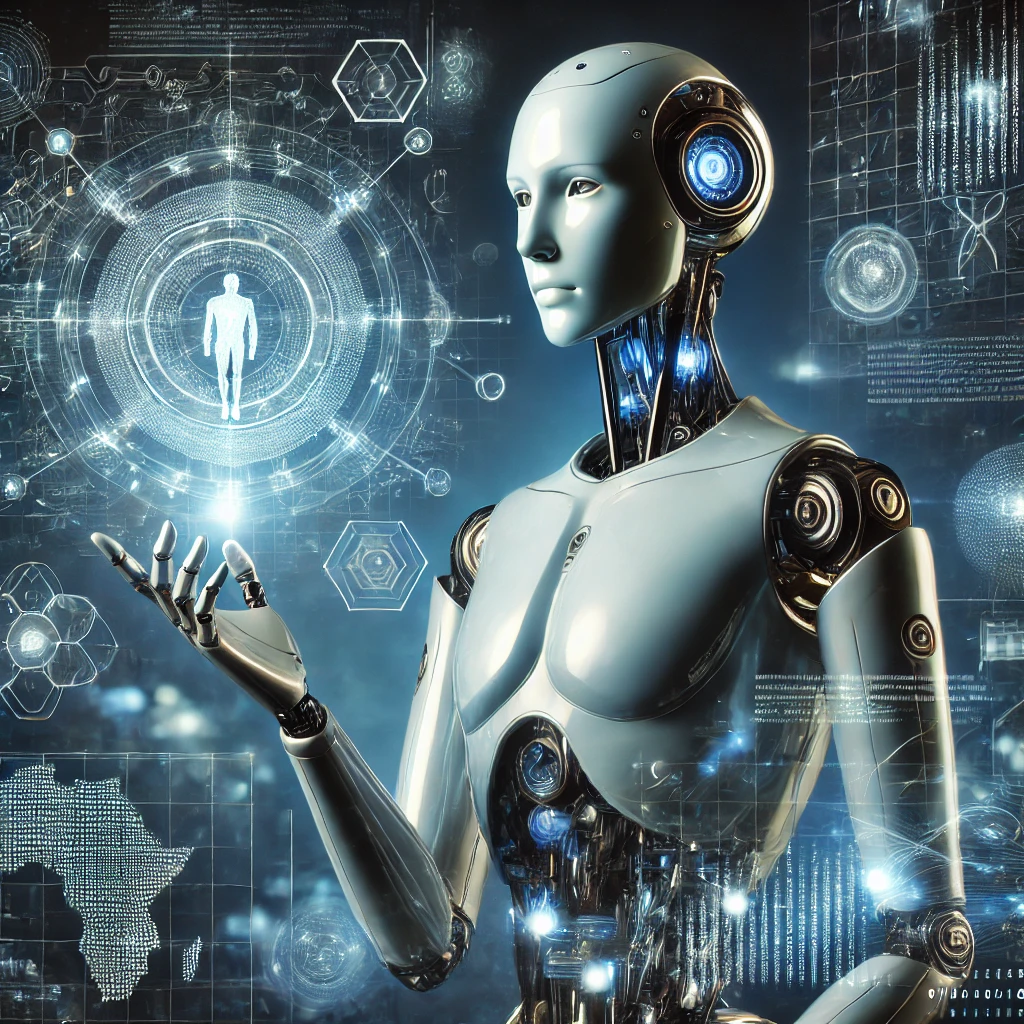Advantages of Quantum Computing
Understanding Quantum Computing
Quantum computing taps into principles of quantum mechanics like superposition, entanglement, and interference to perform calculations that classical computers cannot handle efficiently. At the heart of a quantum computer are qubits (quantum bits), which, unlike classical bits, can exist in multiple states simultaneously due to superposition. This parallelism is key to quantum computers’ superior processing capabilities.
Key Concepts:
- Superposition: A qubit can represent both 0 and 1 at the same time, enabling quantum computers to perform multiple calculations simultaneously.
- Entanglement: Quantum particles can become entangled, meaning the state of one particle is directly related to the state of another, no matter how far apart they are. This property allows for incredibly fast data processing and secure communication.
- Quantum Interference: The ability to control quantum states by amplifying correct paths and canceling incorrect ones, leading to efficient problem-solving.
Advantage
1.Unmatched Computational Speed

The most widely recognized advantage of quantum computing is its ability to solve certain problems at an exponentially faster rate than classical computers. Tasks that would take classical computers millions of years to solve, such as factoring large prime numbers, could be achieved by quantum computers in seconds.
Easy Explanation:
Quantum computers are incredibly fast at certain tasks because they can process multiple possibilities at the same time. Classical computers process one task at a time, following a linear path (like reading one book page by page). In contrast, quantum computers can “read” multiple pages at once.
Practical Example:
Imagine you’re trying to find the shortest route to deliver packages across multiple cities. A classical computer has to check each route one by one, while a quantum computer can evaluate many routes simultaneously, finding the shortest route much faster.
Practical Applications:
- Cryptography: Quantum computers could crack today’s encryption methods (like RSA) much faster by factoring large numbers more efficiently.
- Optimization Problems: Businesses dealing with logistics, supply chains, or complex scheduling could benefit from quantum algorithms to optimize resources and reduce costs.
In 2019, Google claimed “quantum supremacy” when their quantum computer, Sycamore, solved a problem in 200 seconds that would take the fastest classical supercomputers 10,000 years. Although the practical utility of this experiment was limited, it was a pivotal moment demonstrating the potential for quantum speed in real-world applications.
2.Solving Intractable Problems

Quantum computers excel at solving problems that are computationally infeasible for classical computers. Many of these problems arise in fields such as cryptography, combinatorial optimization, and molecular modeling, where the number of possible solutions grows exponentially.
Easy Explanation:
Some problems, like predicting how a complex molecule behaves, are too difficult for classical computers because they need to calculate too many variables. Quantum computers, however, can handle these huge amounts of information quickly and efficiently.
Practical Example:
Scientists could use quantum computers to simulate the structure of new drugs or materials at the molecular level. This would help in creating new medications or discovering better, more durable materials without years of trial and error.
Quantum vs. Classical Problem-Solving:
- Combinatorial Optimization: Classical computers struggle with problems like the traveling salesman, where the number of possible routes grows factorially with the number of cities. Quantum algorithms can explore many possible solutions simultaneously, drastically reducing time to solution.
- Molecular Simulations: Simulating the behavior of molecules and chemical reactions is extremely challenging for classical computers, as the number of quantum states in even a small molecule can be astronomically large.
3.Breakthroughs in Cryptography

Quantum computing is poised to disrupt the world of cybersecurity. Most current encryption techniques rely on the difficulty of solving mathematical problems like factoring large integers or discrete logarithms, which are computationally hard for classical computers. However, quantum algorithms such as Shor’s algorithm can solve these problems exponentially faster, putting existing encryption methods at risk.
Easy Explanation:
Quantum computers can break current encryption methods that keep our data safe. However, they can also create new types of encryption that are much more secure. This is both a challenge and an opportunity for cybersecurity.
Practical Example:
Today, your online bank account is protected by encryption that would take classical computers thousands of years to crack. A quantum computer could crack it in minutes. However, new quantum encryption methods, like quantum key distribution (QKD), will be unbreakable, ensuring your data stays safe.
Impacts:
- Post-Quantum Cryptography (PQC): Researchers are actively developing new encryption methods resistant to quantum attacks. Quantum computers will also enable secure communication methods through quantum key distribution (QKD), which leverages entanglement to create unhackable encryption keys.
This quantum advantage may necessitate a complete overhaul of global cybersecurity standards, emphasizing the urgency of developing quantum-resistant algorithms.
4.Advancements in AI and Machine Learning

Quantum computing holds the potential to revolutionize artificial intelligence (AI) and machine learning (ML) by significantly improving data processing, pattern recognition, and optimization processes. Current ML models require vast computational resources to analyze and classify data, but quantum computing can enhance these models by reducing training times and enabling more accurate predictions.
Easy Explanation:
Quantum computers can enhance AI by speeding up the time it takes to process large data sets. Machine learning algorithms, which train on huge amounts of data to recognize patterns, could train much faster on a quantum computer.
Practical Example:
In fields like medical diagnostics, quantum-enhanced AI could quickly process and analyze medical images (like MRI scans), identifying diseases much earlier and more accurately.
Quantum Impact on AI:
- Speeding Up Training: Quantum computers can process complex datasets at speeds far surpassing classical systems, reducing the time needed for machine learning model training.
- Enhanced Algorithms: Quantum computing offers the potential for more efficient AI algorithms that leverage quantum principles for better decision-making.
In 2020, IBM and MIT collaborated to explore how quantum computing can accelerate AI, with early research showing quantum models providing superior classification accuracy in specific datasets like image recognition.
5.Quantum Simulation for Scientific Research

Quantum simulation allows scientists to model complex quantum systems, something that classical computers struggle with due to the sheer number of variables involved. Quantum simulations can revolutionize fields like physics, chemistry, and biology by offering insights into systems that were previously impossible to simulate.
Easy Explanation:
Quantum computers can mimic the behavior of atoms and molecules, allowing scientists to study how nature works in ways classical computers can’t. This could revolutionize research in fields like biology, chemistry, and physics.
Practical Example:
Quantum computers could help simulate how proteins fold. This is important because the way a protein folds determines its function, and misfolding can lead to diseases like Alzheimer’s. With quantum computing, scientists could discover new treatments or cures by understanding proteins better.
Key Applications:
- Pharmaceuticals: Quantum simulations can model drug interactions at the molecular level, leading to faster discovery of new drugs.
- Material Science: Quantum computers can simulate the behavior of new materials under various conditions, optimizing their properties before they are physically synthesized.
For example, researchers at Microsoft are developing quantum algorithms to simulate chemical reactions for better understanding enzyme mechanisms, potentially accelerating the development of catalysts for sustainable energy solutions.
6.Impact on Material Science and Chemistry
Quantum computing will significantly impact material science and chemistry by improving the accuracy of molecular simulations and predictions. Quantum mechanics is essential to understanding molecular behavior, and quantum computers are naturally suited to simulating these processes.
Easy Explanation:
Quantum computing allows us to better simulate and understand materials at the atomic level. This helps researchers design new materials with specific properties—stronger, lighter, or more efficient than anything we have today.
Practical Example:
Quantum computers could help develop better batteries by simulating how different chemical compounds interact. This would lead to longer-lasting and more efficient batteries for electric cars or renewable energy storage.
Potential Use Cases:
- Battery Development: Quantum computers can simulate the chemical processes in batteries, helping researchers design more efficient energy storage solutions.
- New Material Discovery: Companies like IBM are exploring quantum simulations for developing new materials with specific properties, from superconductors to lightweight composites used in aerospace.
Real-World Examples and Case Studies
Google’s Quantum Supremacy:
In 2019, Google’s 53-qubit Sycamore processor solved a specific problem in 200 seconds, which would have taken classical supercomputers approximately 10,000 years. This achievement, while mostly symbolic, marked a breakthrough in proving quantum speedup in real-world scenarios.
IBM’s Quantum Research Initiatives:
IBM’s quantum research efforts include collaborations with industries like finance and healthcare to explore the use of quantum computers for improving risk analysis, fraud detection, and drug discovery. IBM’s Qiskit platform allows developers to experiment with quantum algorithms, paving the way for practical applications.
Volkswagen’s Traffic Optimization:
Volkswagen is exploring quantum computing to optimize urban traffic flow. In partnership with D-Wave, they developed an algorithm to reduce travel times by analyzing vast amounts of traffic data in real-time, showcasing how quantum computing can solve complex logistical challenges.
Challenges and the Future of Quantum Computing
While the advantages of quantum computing are vast, there are still significant challenges to overcome before quantum computers become mainstream:
Key Challenges:
- Error Correction: Quantum systems are highly susceptible to errors due to environmental interference. Significant advances in quantum error correction are needed to achieve stable, large-scale quantum computing.
- Scalability: Building and maintaining stable qubits is technically challenging, and scaling up quantum processors while maintaining coherence is an ongoing issue.
- Practical Applications: While quantum supremacy has been demonstrated, most current quantum algorithms still lack practical, everyday applications. Further research is needed to bridge this gap.
Nevertheless, tech giants like IBM, Google, and Microsoft, along with startups like Rigetti and IonQ, are investing heavily in overcoming these challenges. The race toward scalable, fault-tolerant quantum computers is accelerating, and breakthroughs are expected within the next decade.
Frequently Asked Questions
1. What are the key advantages of quantum computing over classical computing?
The advantages of quantum computing over classical computing primarily include faster computational speeds for specific tasks, the ability to solve complex problems that are nearly impossible for classical systems, and breakthroughs in areas like cryptography, artificial intelligence, and materials science. Quantum computers can process multiple possibilities simultaneously, whereas classical computers are limited to one step at a time.
2. How do the advantages of quantum computing affect industries like healthcare and pharmaceuticals?
In healthcare and pharmaceuticals, the advantages of quantum computing allow for rapid simulation of molecular interactions, enabling quicker drug discovery and more precise medical treatments. Quantum simulations could lead to better understanding of diseases at the molecular level, paving the way for advanced treatment options and personalized medicine.
3. Can the advantages of quantum computing improve cybersecurity?
Yes, the advantages of quantum computing include both threats and solutions to cybersecurity. While quantum computers can break traditional encryption methods like RSA, they also enable new forms of encryption, such as quantum key distribution (QKD), which is highly secure and virtually impossible to hack.
4. How do the advantages of quantum computing impact artificial intelligence and machine learning?
The advantages of quantum computing in artificial intelligence (AI) and machine learning (ML) include faster processing of large datasets and more efficient training of machine learning models. This results in more accurate predictions and quicker AI development, enhancing fields such as medical diagnostics, financial forecasting, and natural language processing.
5. What are the specific advantages of quantum computing in material science and chemistry?
The advantages of quantum computing in material science and chemistry include the ability to simulate molecular structures with far greater accuracy than classical computers. This can lead to the discovery of new materials, such as better-performing batteries, stronger metals, or more efficient superconductors, by predicting how different atoms and molecules will interact.
6. How does Google’s claim of quantum supremacy demonstrate the advantages of quantum computing?
Google’s claim of quantum supremacy showcases the advantages of quantum computing by demonstrating that their quantum computer solved a problem in 200 seconds that would have taken classical computers 10,000 years. While this specific task had limited practical use, it was a major proof-of-concept for the speed advantage of quantum computing.
7. Are the advantages of quantum computing limited to scientific research, or can they be applied to business sectors as well?
The advantages of quantum computing are not limited to scientific research; they can also be applied in business sectors such as finance, logistics, and energy. For example, quantum computers can optimize supply chains, improve financial modeling and risk analysis, and simulate energy-efficient systems, leading to cost reductions and increased efficiency.
8. Will the advantages of quantum computing be accessible to businesses in the near future?
While the full advantages of quantum computing are not yet widely accessible due to technical challenges, many companies like IBM and Microsoft are developing cloud-based quantum computing platforms, allowing businesses to experiment with quantum algorithms today. As the technology matures, its advantages will become more broadly available across industries.
9. How will the advantages of quantum computing evolve in the next decade?
The advantages of quantum computing are expected to evolve significantly over the next decade as researchers develop more stable, scalable quantum systems. Improvements in quantum error correction and the development of practical quantum algorithms will expand its applications in fields like AI, chemistry, and cryptography, further revolutionizing various industries.
10. Can the advantages of quantum computing help address climate change and sustainability?
Yes, one of the advantages of quantum computing is its potential to address climate change and sustainability. Quantum simulations could lead to the development of more efficient energy storage systems, such as better batteries for renewable energy, or help design materials that reduce carbon emissions in manufacturing processes.
Conclusion: The Quantum Leap Ahead
Quantum computing is still in its early stages, but its advantages are clear. From solving intractable problems to advancing AI, cryptography, and materials science, quantum computers will reshape industries and unlock new possibilities for scientific discovery. While challenges remain in terms of scalability, error correction, and practical applications, the progress so far has laid a solid foundation for a future where quantum computing transforms the technological landscape.
For those in industries poised to benefit—finance, pharmaceuticals, logistics, and beyond—the key takeaway is to start exploring quantum applications today. By leveraging early quantum tools and participating in quantum research initiatives, forward-thinking businesses can position themselves at the forefront of this revolutionary leap.
For more detailed insights into the advantages of quantum computing, you can explore this comprehensive resource from IBM on Quantum Computing. It provides in-depth explanations of quantum principles, practical applications, and the future of this groundbreaking technology.
To explore how quantum computing could impact the future of AI, particularly in developing artificial general intelligence (AGI), check out this article on Artificial General Intelligence, which delves into the potential evolution of AI and its intersection with emerging technologies.
The quantum age is not a distant futureit is unfolding now.










3 thoughts on “Best 6 Advantages of Quantum Computing”